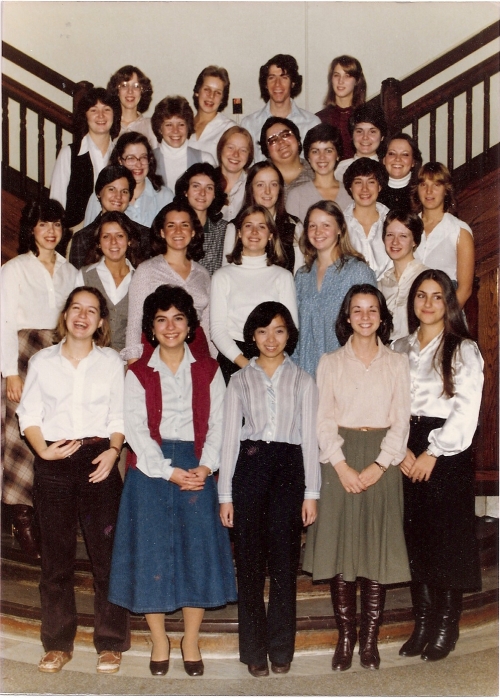 Source: Ingram School of Nursing
Source: Ingram School of Nursing
This seems a fitting time to share a simple tale of the power of communication. It was nonverbal communication that I recall being stressed during our nursing education during the days the faculty were devising the McGill Model of Nursing. Our first exposure to patients in 1977 was to approach people in the out-patient clinics at the Royal Victoria Hospital, initiate conversations with them, about why they were there, and in that short time earn their trust so that they might allow us to accompany them in to their time with the physician. This taught us much about the various forms of communication people use, and that we as nurses used as well. Many clinical reports would be written analyzing what each person we met said or did and what we said or did in response as we learned a greater awareness of the power in all forms of communication.
Armed with my piece of paper and pen I went into the room. Greeting the woman I boldly proceeded to act out charades, with some sound effects, and drew drawings as I went through the whole process of defecation. The lady was totally baffled watching this nurse gesturing to the bathroom, squatting and grimacing while drawing on her paper, but as I repeated the charades with my drawings her eyes suddenly widened and she started to laugh. Holding a pillow to her abdomen to lessen her pain I too laughed with relief as she realised what I was asking. We had a great hug and after that she would always chuckle when she saw me. Over the days prior to discharge I was always assigned to her and we forged a friendship learning about each other, her family, her work on the fishing trawler and home country of Poland. Along with our ongoing charades we would draw all over the paper towels by her sink; maps, stick figures, fish, boats, food and more. I taught her English words and she taught me Polish words while I concentrated on her specific discharge teaching needs. My collegues always remarked with wonder that I could find out so much from her but not speak the same language.
Communication in all its forms is so vital in Nursing. It is the strength at the heart of all that nurses do and all the different forms of communication must never be ignored or forgotten. I had the privilege of communicating with patients, their families, nursing students, physicians and other health professionals during my varied nursing career in Canada’s Arctic, Scotland, the US and other parts of Canada. Working with people has been so personally rewarding, but most of all fun. Without speaking words we share and learn so very much.
Story of Strength by:
Deirdre Waywell
Former Student, Class of 1980
